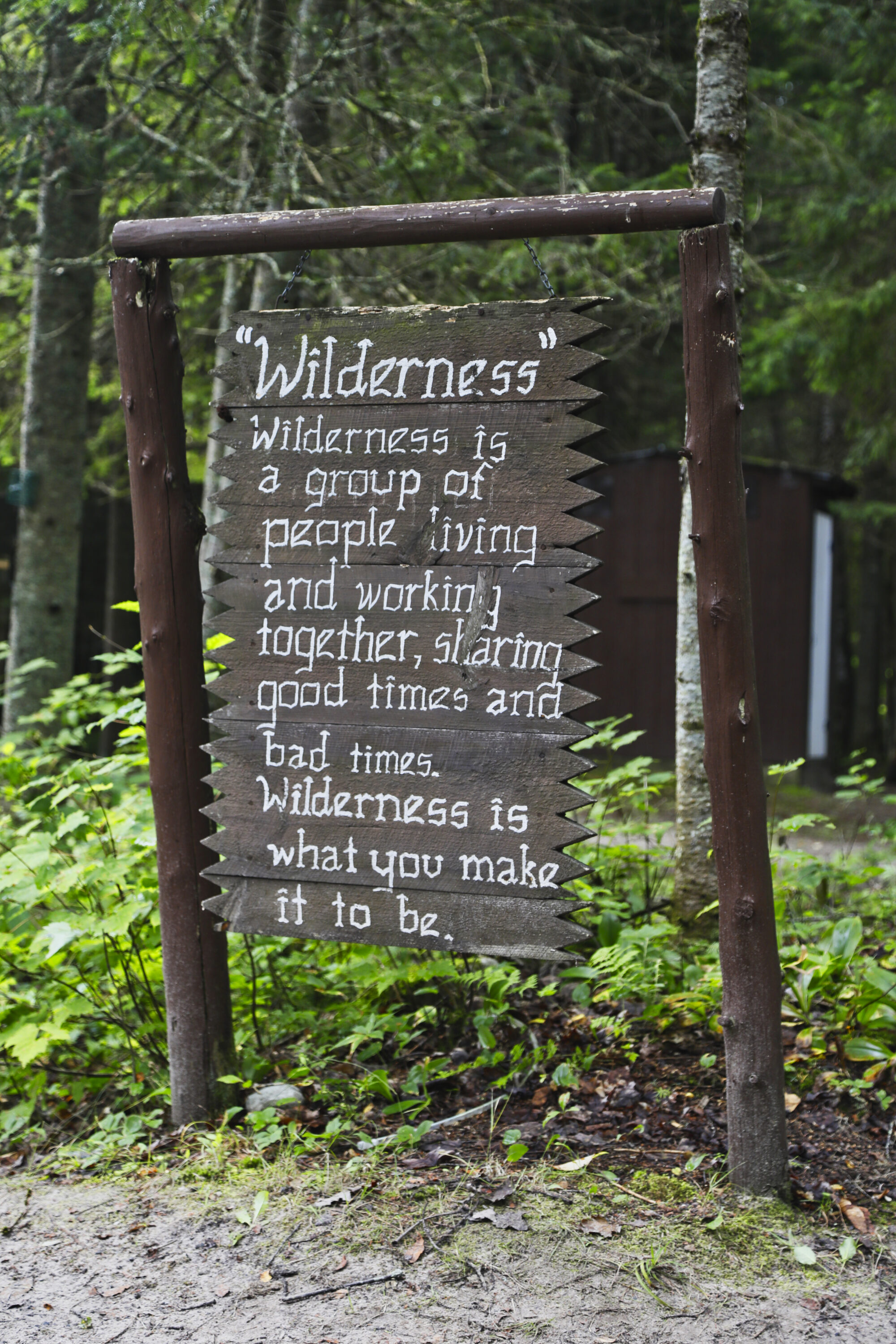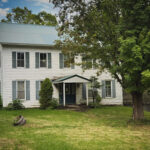The air is cool and heavy with the scent of pine. Through my open window I hear the wind whispering in the branches—a gentle hush that carries me back to the first woods I ever loved. I remember being a little girl at summer camp, sitting cross-legged by the fading campfire on the final night. We sang softly into the darkness, voices trembling with the end of summer, “I will remember the woods all my life,” we promised. At the time I didn’t fully grasp what those words meant, but I felt them settle deep in my chest like an oath. Somehow I knew even then that the woods were in me, and I in them.
When I was an adolescent girl, my grandparents’ farm in upstate New York near Buffalo. They owned hundreds of acres of dense pine woods. My parents would drive me to, “the farm”, as they called it, and drop me off to stay with my mom’s side of the family, sometimes for weeks at a time. Whenever I visited, my cousins and I would disappear into that green world for hours. I remember those quiet groves where I was just a girl moving through dappled light and shadow, utterly free.
I think that’s when I fell hopelessly in love with pine trees in particular. The maples and oaks on the farm would flame out and drop their leaves come autumn, but the pines stayed vibrantly green against the hazy gray of winter, defying the cold with their steady presence. There was something inspiring in that resilience. I’d run my hand over the rough, plated bark of an old white pine and feel connected to its strength—as if a little of that ancient endurance could flow into me. To this day, pine is my favorite tree. It’s a living reminder of everything that stands through the storms of life. The pine is hardy and humble, and alive when all else goes barren. In those woods I learned what resilience looks like, and why it matters.
Over the years, the relationship my parents had with my mom’s side of the family soured. We lost touch, I stopped being able to return to the farm, and my parents made the ultimate decision to enroll me in summer camp in the Adirondacks. Those childhood summers in the forest were the first time I felt truly at home in the world. Even now I can close my eyes and conjure the smell of woodsmoke, and crushed pine needles from that time, the perfume of innocence and freedom that I have carried with me ever since.
Life was good then—or at least tolerable, which is sometimes the best you can hope for when you’re a kid straddling the strange divide between being known and being understood. I had one best friend back home, the kind of quiet alliance that made the days bearable, even if the undercurrent of being different never quite let up. At summer camp, I was accepted—welcomed, even—but I still never fully fit in. I wasn’t the loudest or the prettiest or the most popular. I was the girl off to the side, scribbling in her notebook, listening more than speaking, always half-ghost and half-feral.
Every couple of years I’d try to go back—to see if maybe they remembered me for something more than my name written in Sharpie on the wall where my bed used to be. They did remember me, at least by name, but it was hollow recognition—a nod, not a homecoming.
Then came boarding school at fourteen, and that was another exercise in endurance. I made it through by holding onto to the promise of summer. I had a calendar on my dorm room wall like that of a prisoner with an intellect like Galileo. Each day would show the number of days until my next school vacation. I kept track of the number of days until school — down the days in detail until I could once again disappear into the woods I didn’t have to explain myself to anyone.
When I was sixteen, my world turned upside down. I lost the family I’d always known in one cruel sweep of judgment and misunderstanding, and suddenly I had nowhere to go. Instinctively, I drove toward the only refuge I could think of—the woods. I ended up back at that summer camp, not as a camper but as a scrappy teenage staffer determined to survive on my own terms. I scrubbed dishes in the camp kitchen by day and slept alone in a canvas tent at night, listening to the wind in the pines above me.
On evenings when I felt utterly abandoned, I’d step out under the blue-black sky, breathe in the sharp pine air, and remind myself that I was still here. The trees didn’t care that I was queer, or a runaway; they accepted me without question.
Life carried me far from those woods for a long time after that. I spent my twenties and thirties in the thick of city life, chasing sirens and tending to emergencies in concrete jungles. I was proud of that work—it gave me purpose—but in the quiet moments between chaos, I would find myself longing for the solace of trees and the crunch of real earth under my feet instead of pavement.
I remember sometimes driving hours out of the city on rare days off, just to find a hiking trail or a patch of forest where I could breathe again. I’d sit with my back against a large tree, feeling the pulse of the living wood, and pretend for a little while that I was back in my grandparents’ pines, or back at camp. The truth is, the woods had imprinted themselves on my soul. Even in those years I couldn’t be among them, I carried the memory of pine shadows, and bird-songs inside me.
So when the time finally came to lay down my helmet and turn in my uniform, I knew exactly where I needed to go. I didn’t want a cushy retirement or a sun-soaked condo by the beach. I wanted my woods back. I wanted real seasons, real silence, real life. That’s how I found myself in Vermont, driving along a rutted dirt road to a modest ranch house encircled by pines. I’ll never forget stepping out of the truck that first morning and feeling the quiet press in around me. It was the kind of quiet you can hear yourself thinking in. Ten acres of sky and pine trees in every direction, wrapping around me. I knew in that moment I was home.
Of course, Vermont is not an easy place to live. The winters here are long and cruel, the soil is rocky, and each day this land tests me in new ways, and I love it. It’s not easy, and that’s the point. This life makes me feel alive in a way comfort and ease never could.
In the end, everything in my life seems to circle back to the woods. The trees I’ve loved—those same pines that watched over my childhood, my youth, and now my middle age have been the one constant thread stitching all my disparate pieces together. There’s a gentle, wordless wisdom in their presence that has guided me, grounded me, healed me, time and again. Here among them, I have room to remember, to forgive, and to continue becoming who I’m meant to be. I am not lonely out here; I’m rooted. The land, the trees, the sky—they’re all part of me, and I of them.
This place is more than just my home—it’s what I know to be true: I will remember the woods all my life.










Leave a Reply